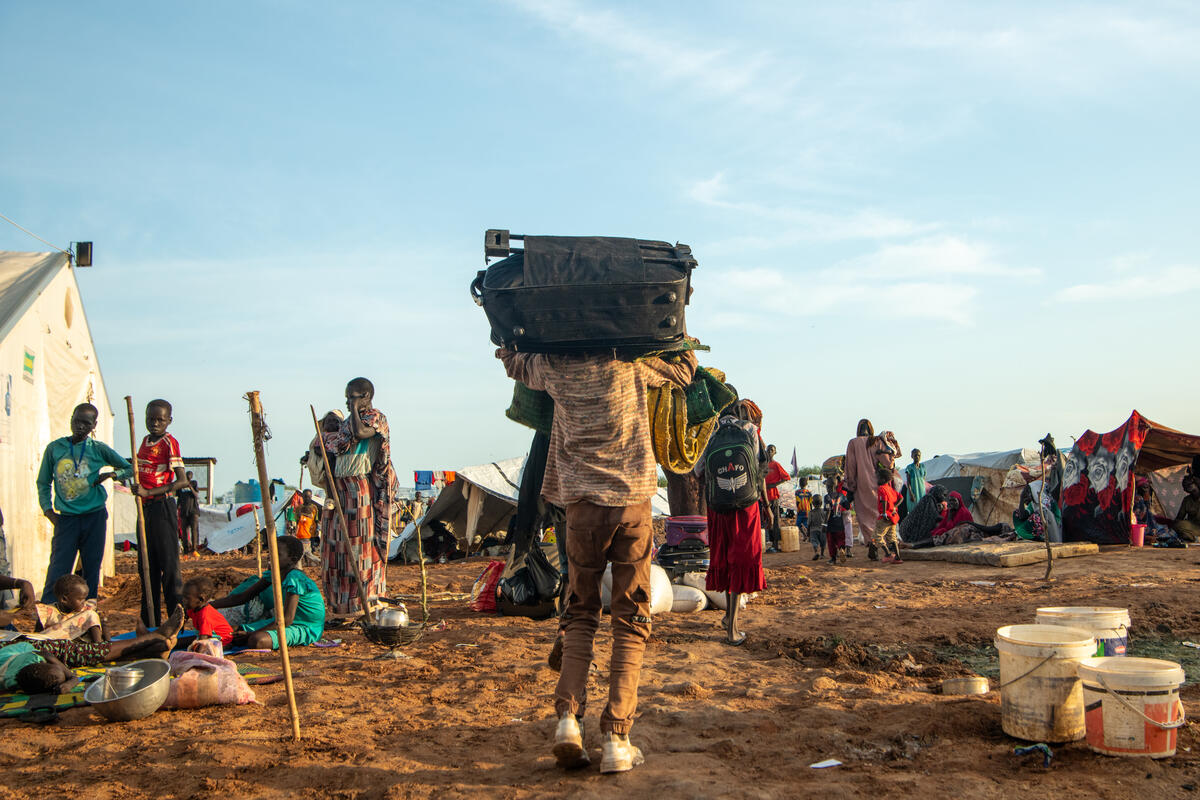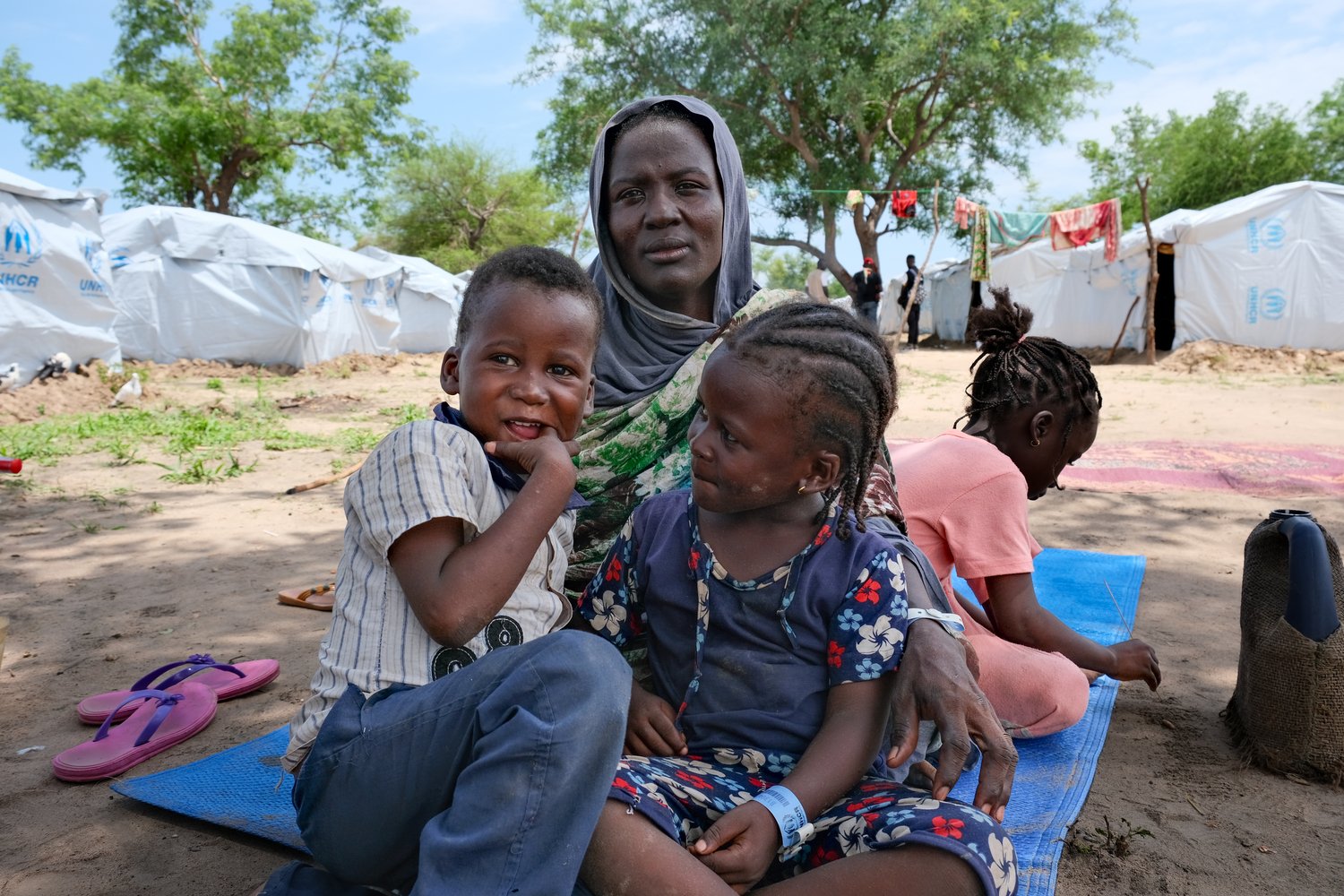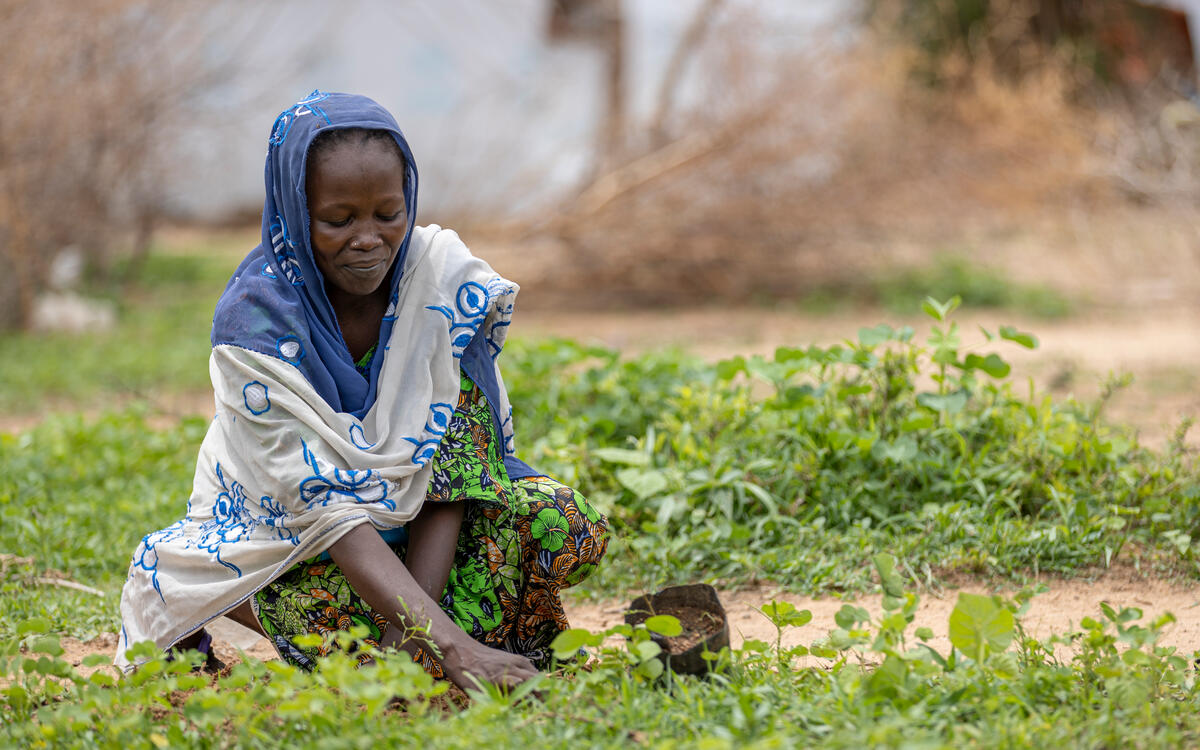Mass wedding renews love, hope and dignity among couples in Cameroon

Mass wedding renews love, hope and dignity among couples in Cameroon
Early morning rain falls incessantly as the roads in the small Cameroonian town of Kentzou turn to muddy, slippery paths. The bad weather does not deter the crowds that have gathered at a community hall downtown, where loud cheers and applause fill the air. Today is a special day - over 20 couples are about to get married.
“I am so happy - today is very special to us,” says Rodrigue, 28, as he holds on to his wife’s hand.
The Cameroonian groom and his bride, Marie-Jeanne, have just exchanged vows, making their union official.
“I am so happy - today is very special to us.”
Beside them are a refugee couple, Mohamadou Balo Asmaou and her husband, Souibou Djibrilla. The two fled violence in the Central African Republic (CAR) five years ago, finding safety in Mbile camp where they live. Minutes before the ceremony starts, they try on the new rings presented to them. In a few minutes, it will be their turn to sign the marriage certificate – a common, yet priceless and often difficult document to obtain for most refugees and locals.
The residents in this small border town in Eastern Cameroon include some 10, 000 Central African refugees who have settled here since conflict broke out in CAR in 2014. In this area, as in other remote parts of Cameroon, the authorities face difficulties to reach the population and issue vital documentation such as birth and marriage certificates - a situation made worse during the rainy season. To remedy this, collective marriage ceremonies are regularly organised during which many married couples get official recognition from the state.
On this day of “collective marriages” the council hall is extremely crowded, mainly by refugees who have turned out to register and legalise their union. Of the 22 couples in attendance, only four are Cameroonians.
Among the group are Jean-Robert and Emilienne who stand out from the crowd. At 72 and 59 respectively, they are the oldest Cameroonian couple to get married here under the admiring gaze of their fellow Cameroonians and refugees in attendance.
This is the second collective wedding ceremony to be organised here with the support of UNHCR, the UN Refugee Agency and the local authorities. For most of the newlyweds who are in actual fact, already married, the ceremony has given them a great sense of relief as their unions are finally official – and they have the documents to prove it.
To help mitigate some of the administrative challenges, which mainly affect women in the case of the passing away of a spouse for example, the authorities, with support from UNHCR and its partners, conduct sensitization campaigns.
“To have such an event is not easy. We had to have sessions to make the population understand the importance of civil weddings,” explains Beatrice Bessemou, a Divisional Delegate for the Ministry of Women’s Empowerment and Family (MINPROFF).
As the ceremony draws to a close, the rain starts to let up and the couples begin to head out one by one.
“We had to have sessions to make the population understand the importance of civil weddings.”
Seated elegantly on a revving motorbike, one of the brides clings to her husband, as he tries not to slip while keeping the motorbike steady on the mud. Further ahead, Rodrigue, looking impressive in his blue attire, heads home with his wife by his side.
A day of great emotion and significance comes to an end, signifying the likelihood of more ceremonies like these that will continue to benefit both refugees and locals.









